Eastmans Chambers
Direct Access BarristersHead of Chambers:
Barrister: M A Ajaz
Family, Business, Chancery, Civil Litigation and Tax Law
Direct Access Barristers
London, South East, Reading & Worldwide
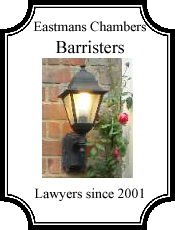
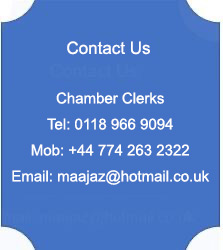
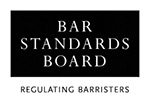

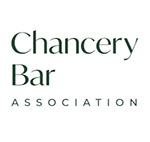

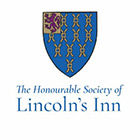
Frequently Asked Questions
What is Direct Access?
As a member of the public, you have the option of directly instructing a barrister, rather than using an intermediary such as a solicitor, or another recognised third party through whom a barrister could be instructed.
What are the advantages of the Direct Access scheme?
In short, the public access scheme could potentially save you money, as you would be paying for a barrister only instead of a barrister and solicitor.
Although our barristers would be able to deal with most aspects of the case, you could have to assist in some limited areas, generally with filing documents with the court.
Is my case suitable for Direct Access?
All of our areas of practice are suitable for Direct Access. When assessing the suitability of your case, our barristers will take into account, the nature of the work and your ability to deal with any aspects of the case which would normally be carried out by a solicitor that cannot be covered by a public access barrister.
Should you wish to discuss your matter further, please do not hesitate to contact us.
Can I instruct a barrister directly when I have already instructed solicitors?
Yes, you may instruct a Direct Access barrister of your choice, even though you have already instructed a solicitor.
How will I be charged?
Normally we charge an hourly rate. In some circumstances we may agree a fixed fee, depending upon the nature of the instructions. All fixed fees are payable in advance. If a client requires, a quotation can be provided for the fixed fee.
Some examples of work which a barrister is allowed to do
a) A barrister may appear on your behalf at Court.
b) A barrister may give you legal advice.
c) A barrister may draft documents for you, such as a Claim, Defence or an Application.
d) A barrister may advise you on the formal steps which need to be taken in proceedings before a court or other organisation and draft formal documents for use in those proceedings.
e) A barrister may draft and send letters for you on his Chambers’ headed paper.
f) If a witness statement from you is required in proceedings, a barrister may prepare that statement from what you tell him or her. A barrister may also help to prepare witness statements from another person based on the information which that person has provided.
g) Where a case requires an expert witness (for example, a surveyor), a barrister may advise you on the choice of a suitable expert and may draft a letter of instruction which you can then send to the expert as a letter from you on your own notepaper.
What is Lincoln’s Inn?
Lincoln’s Inn is an active and thriving society of English Barristers, regulated in England and Wales with a very long history situated in a tranquil enclave of some 11 acres in central London. “Lincoln’s Inn” thus refers both to the Society and the “Place”.
The picture at the top of this pate shows some of the gardens of Lincoln’s Inn
What a barrister cannot do on your behalf:
The following are examples of work that a barrister is not allowed to do:
a) A barrister cannot issue proceedings on your behalf or to issue other applications or to take other formal steps in court or other proceedings. You would have to send the documents to the court, although the barrister could help prepare them for you.
b) A barrister is not allowed to instruct an expert witness on your behalf.
c) A barrister is not allowed to take responsibility for the handling of clients’ affairs, or to handle client money.
What are our terms and conditions?
Our terms and conditions for supplying legal services are tailor made for all individual clients and agreed with clients before accepting instructions.
We operate a complaint handling procedure as recommended by The Bar Standards Board London. In case of any issue please contact Barrister Ajaz, Head of Chambers through the Contact Us page.